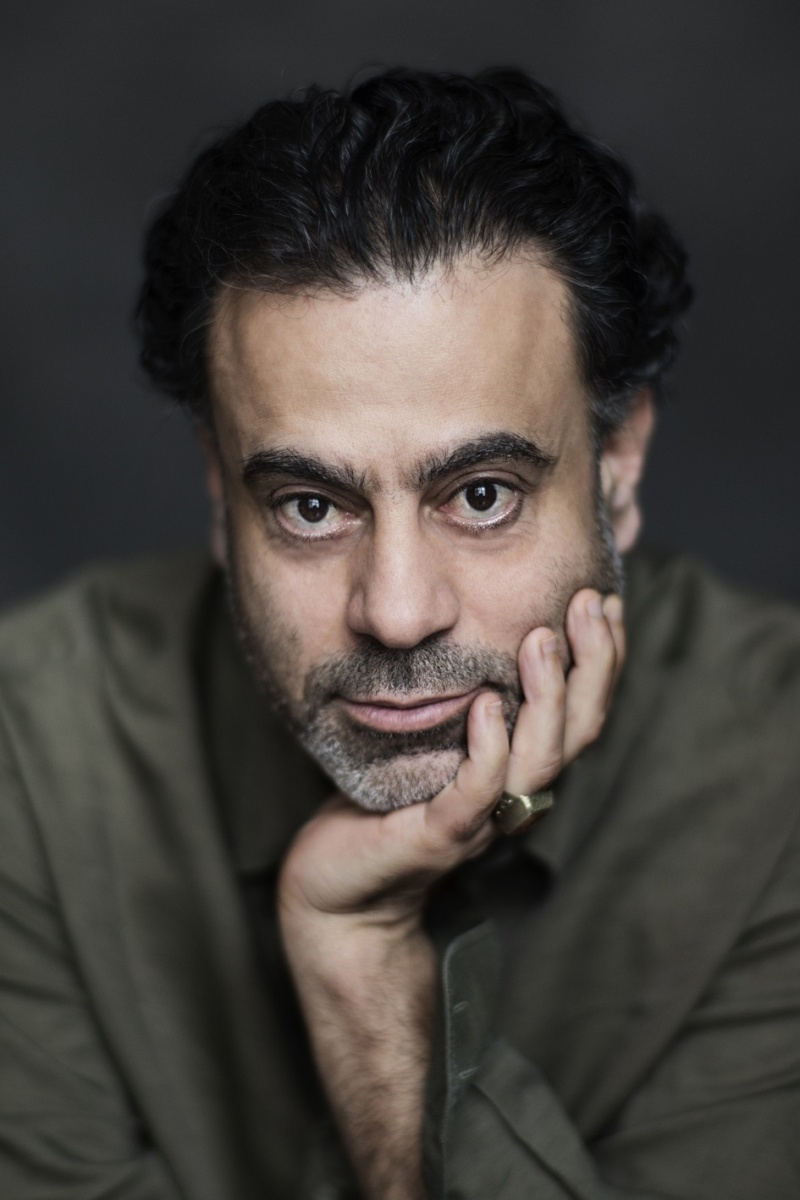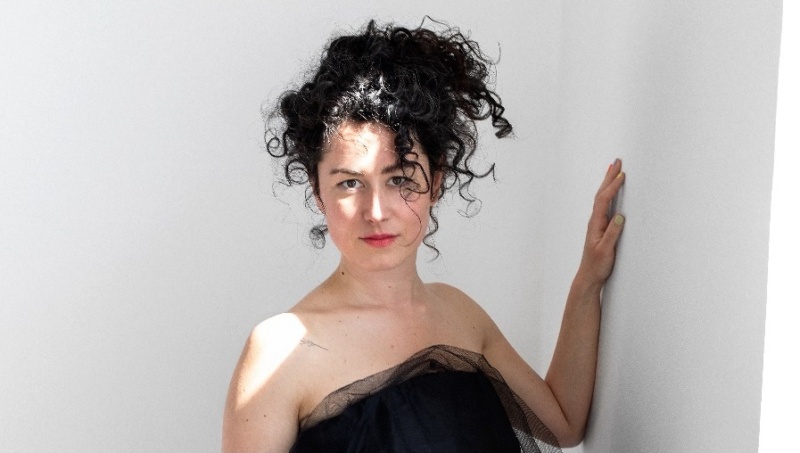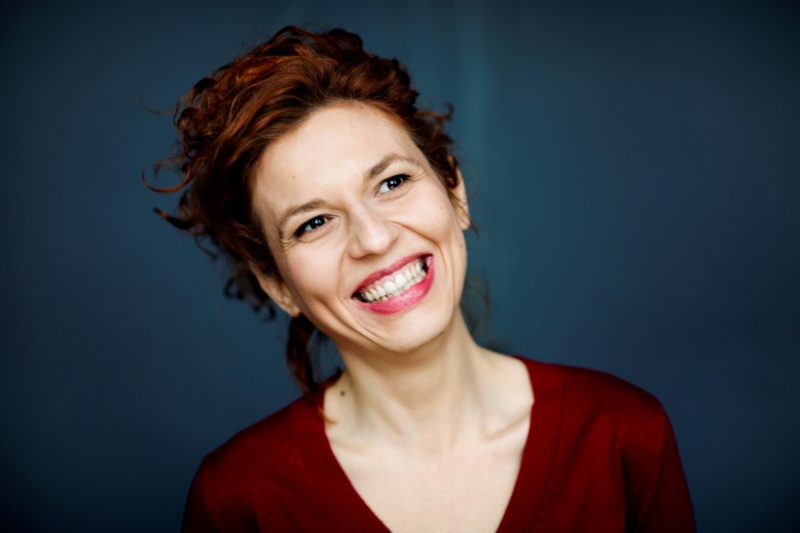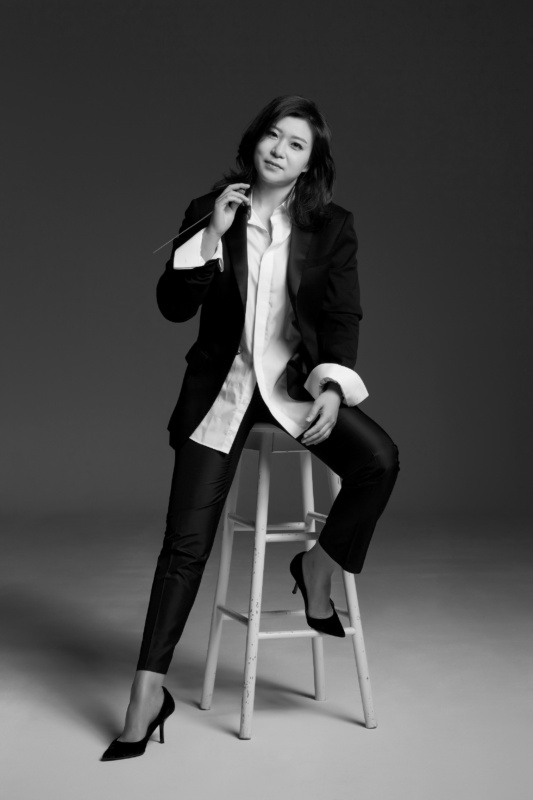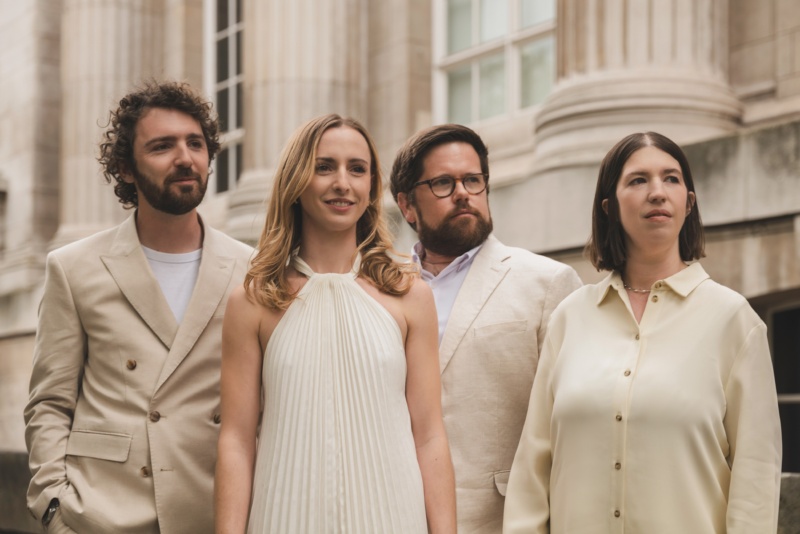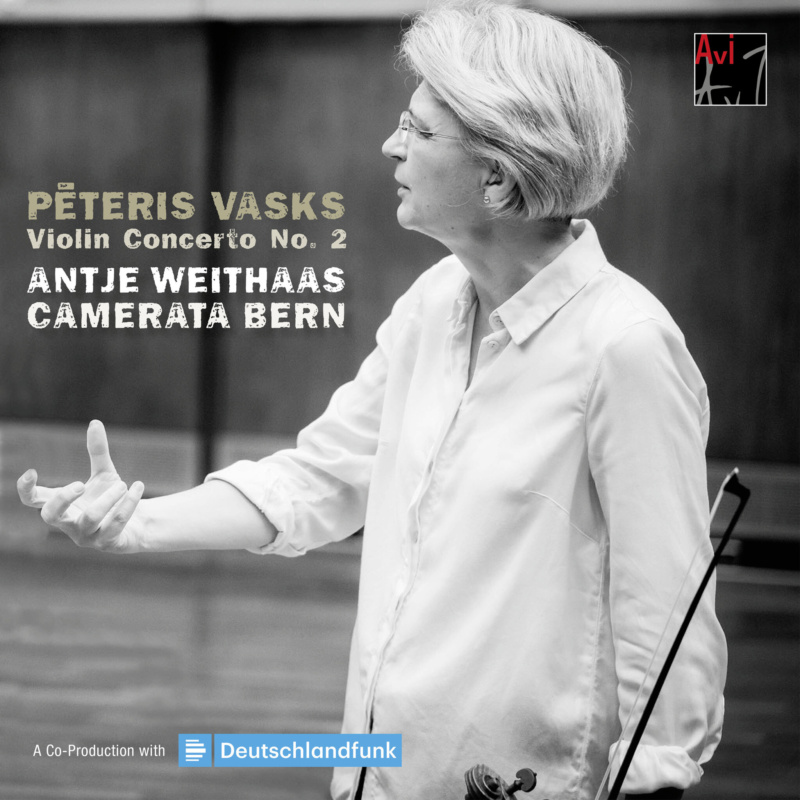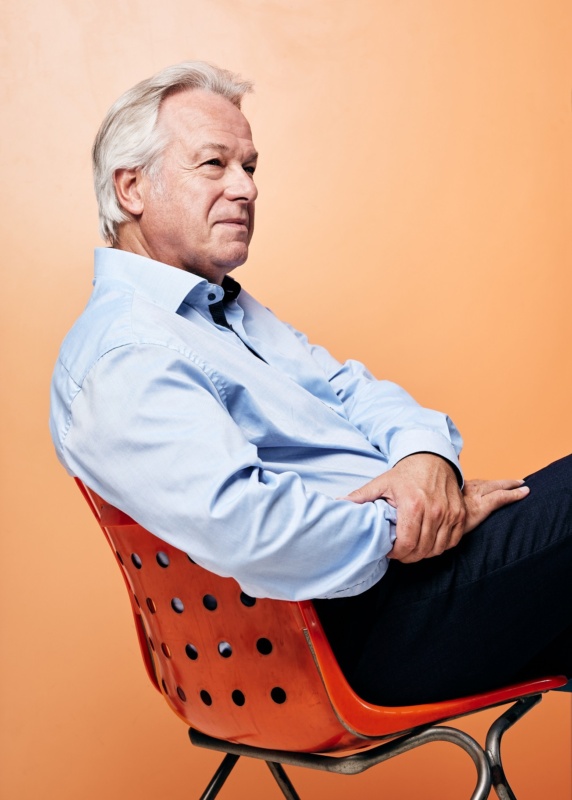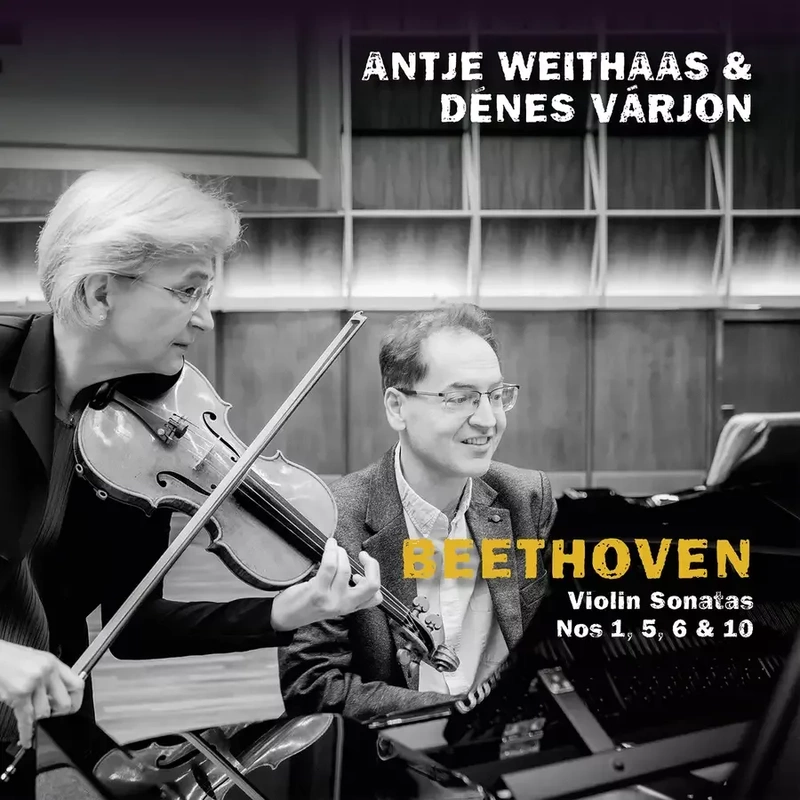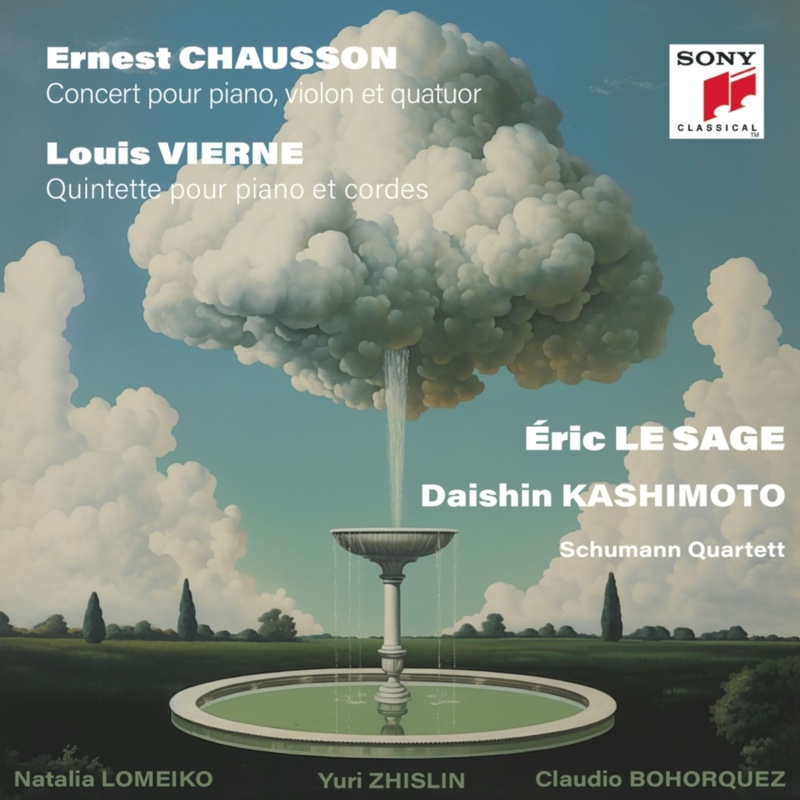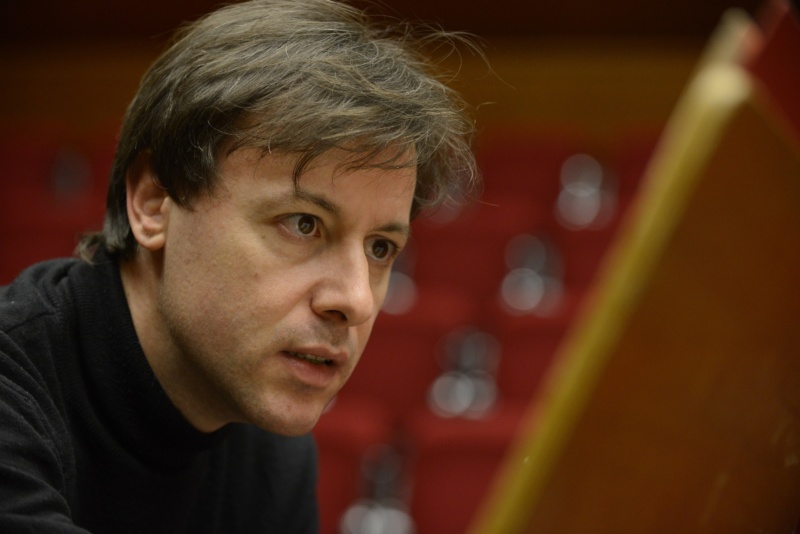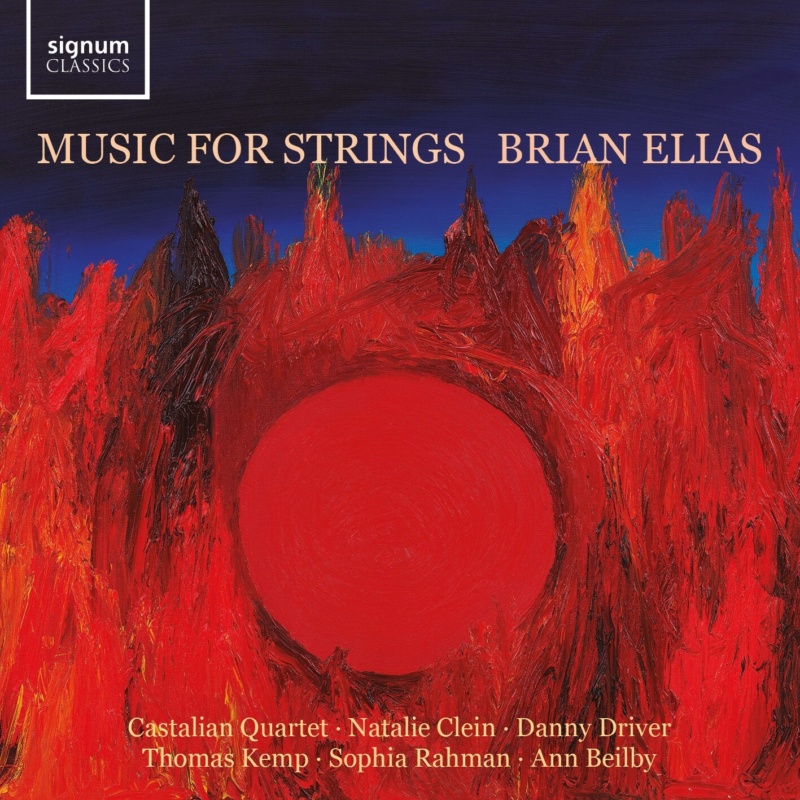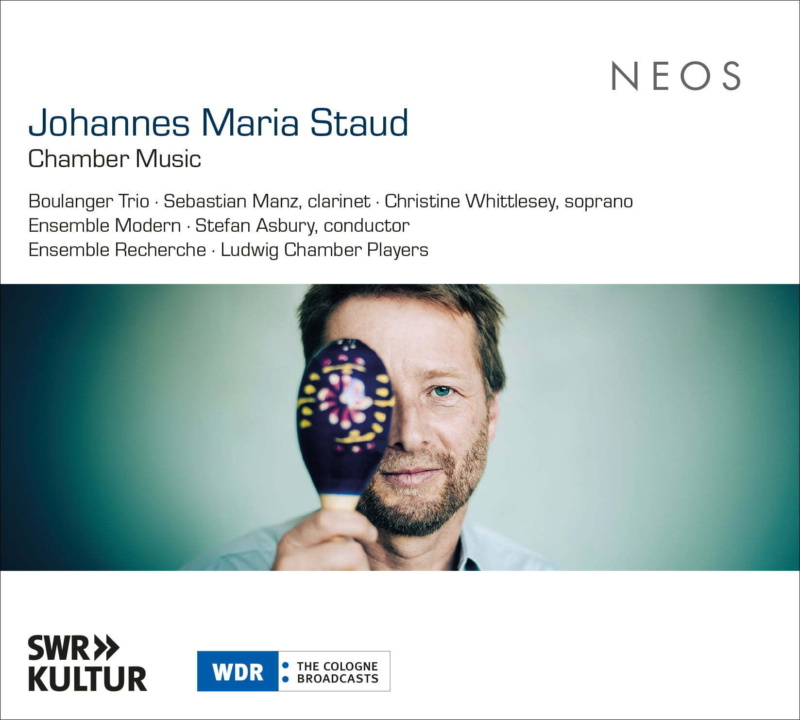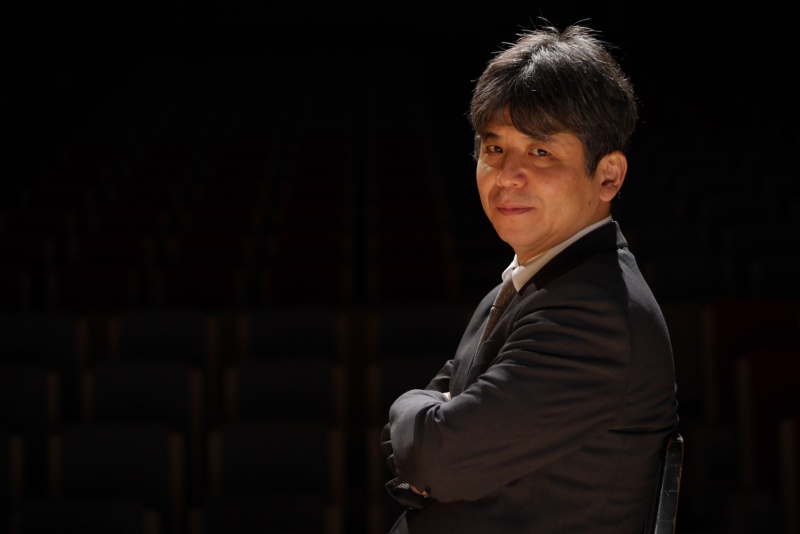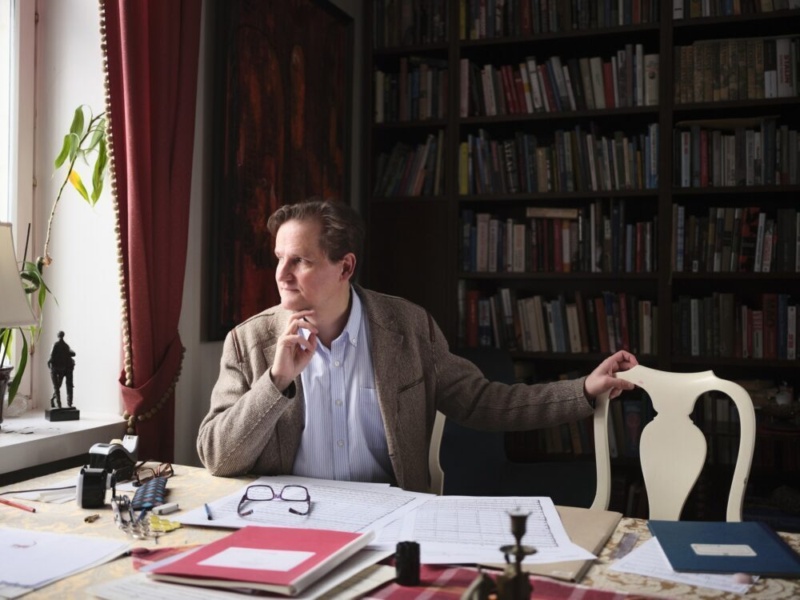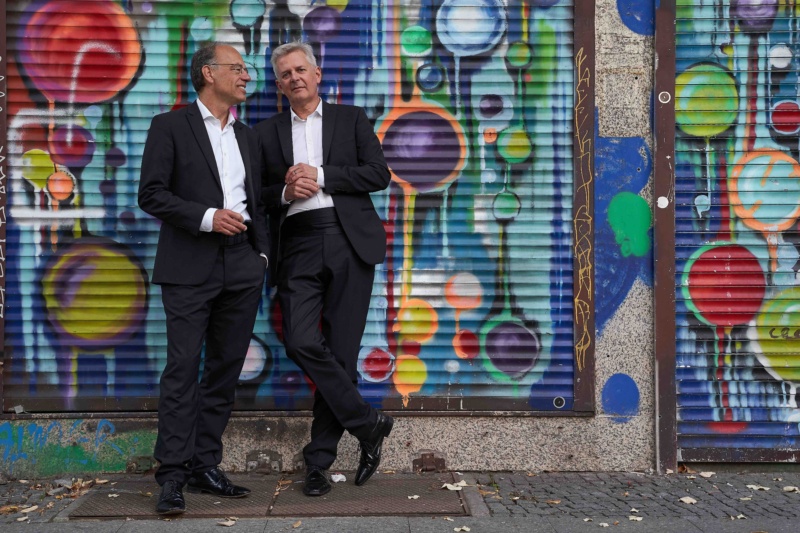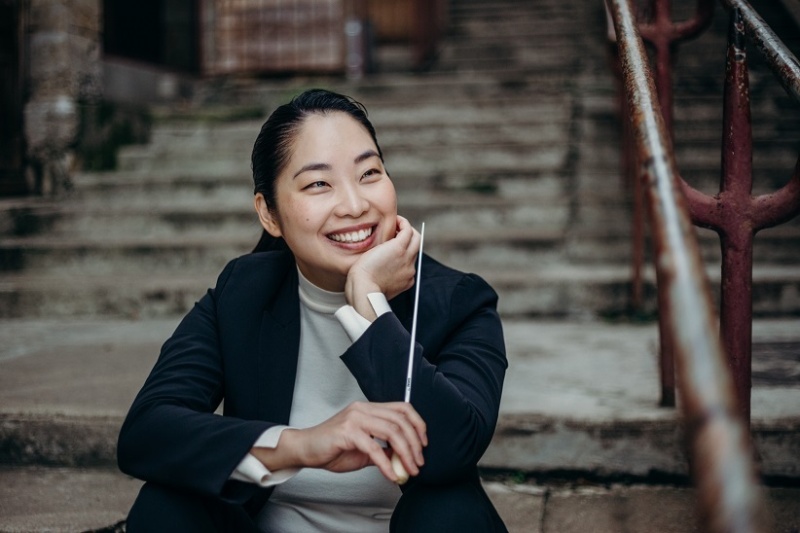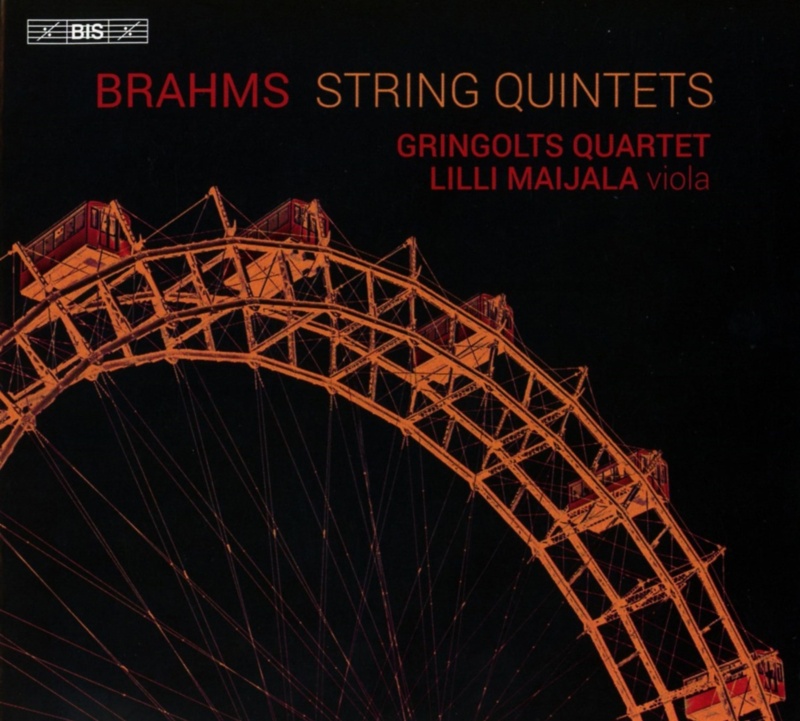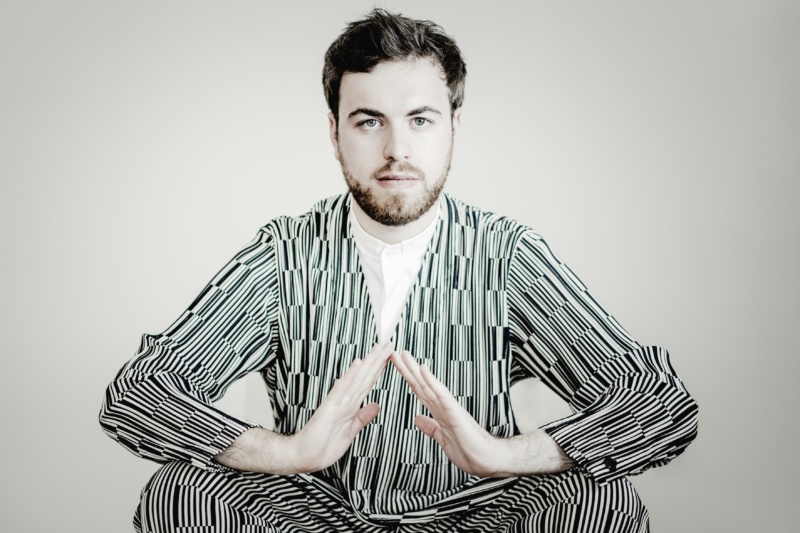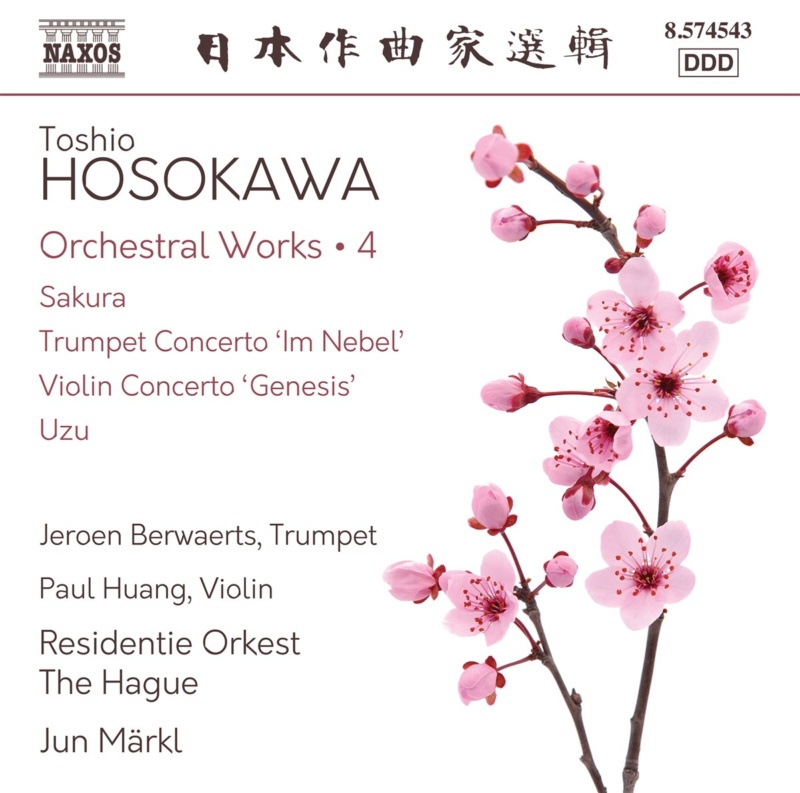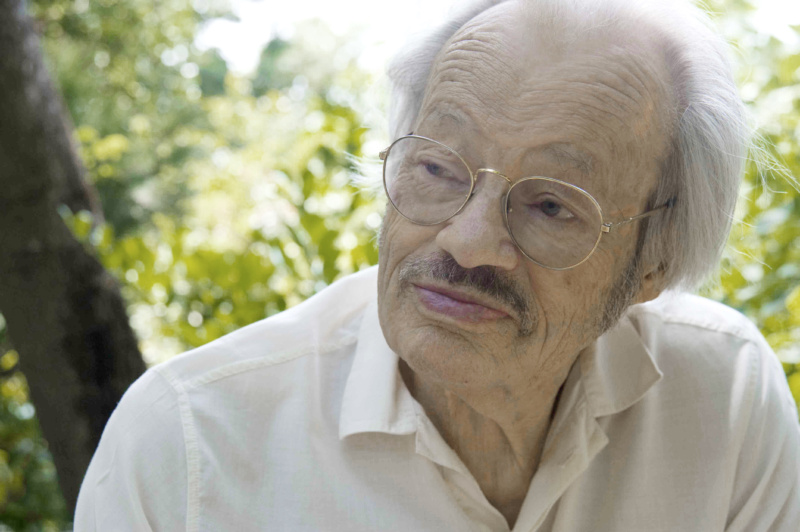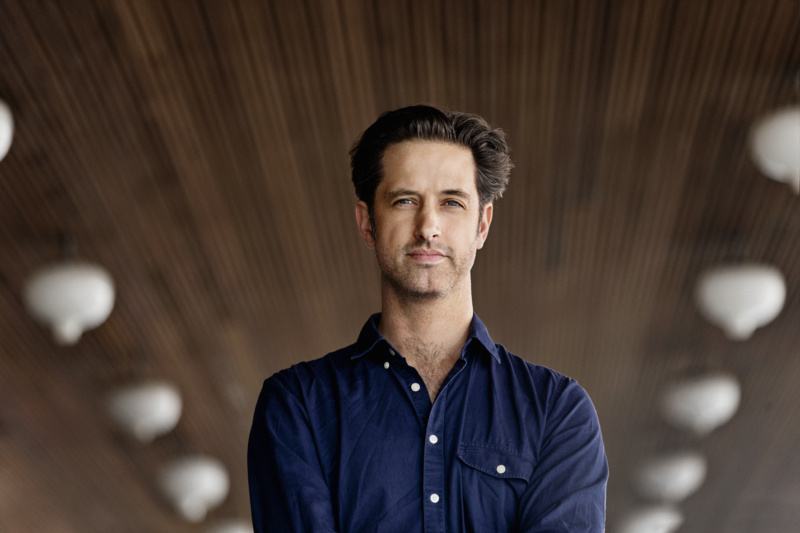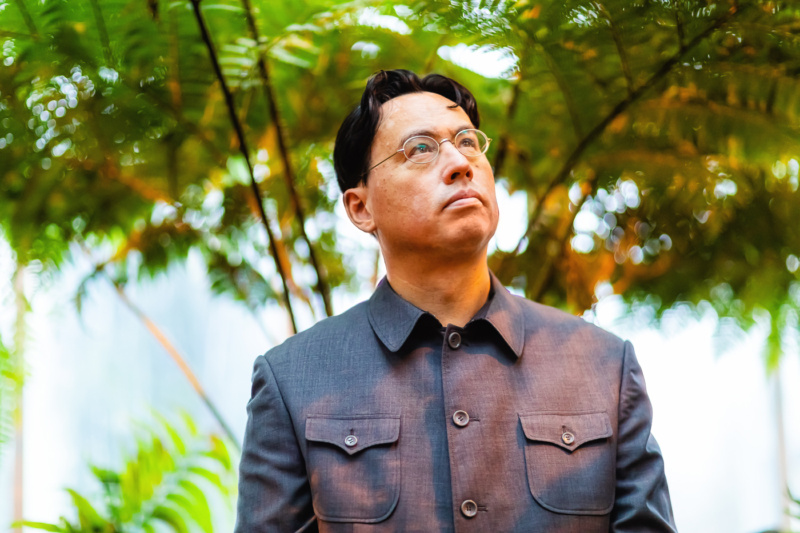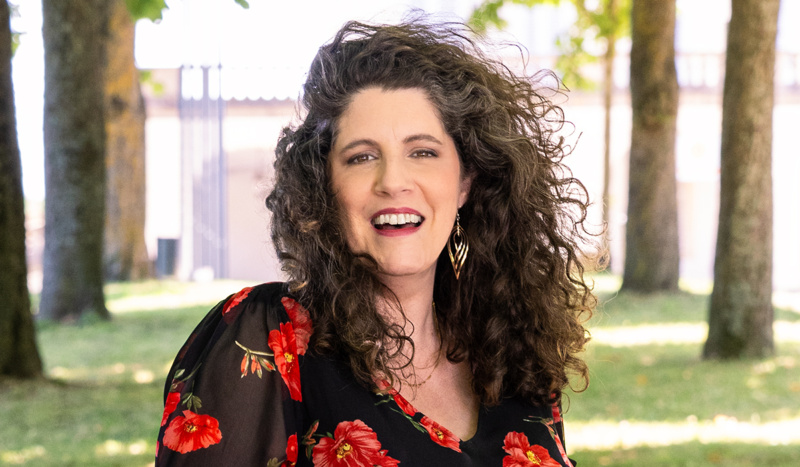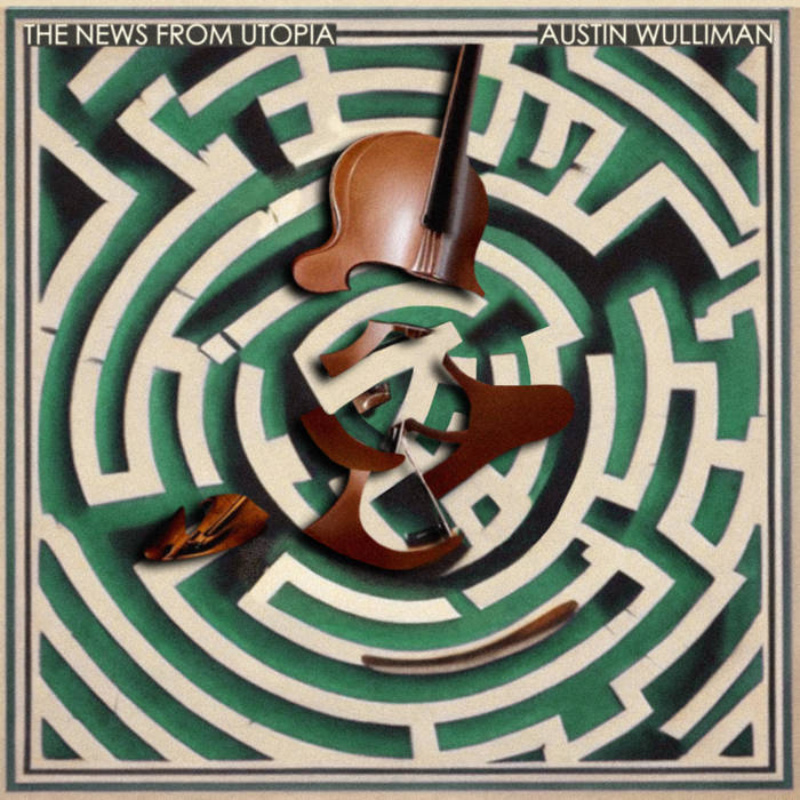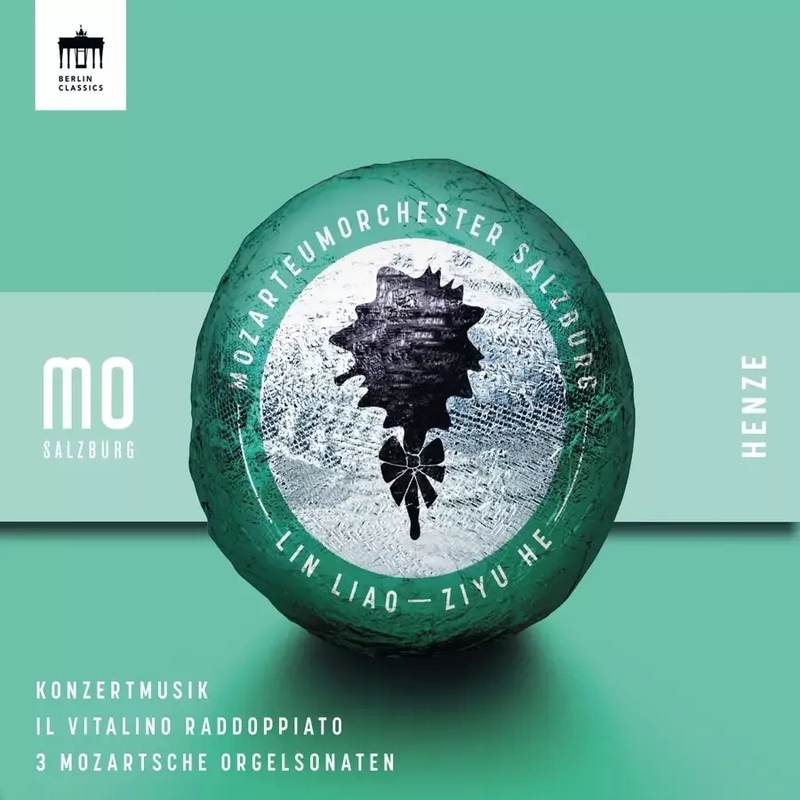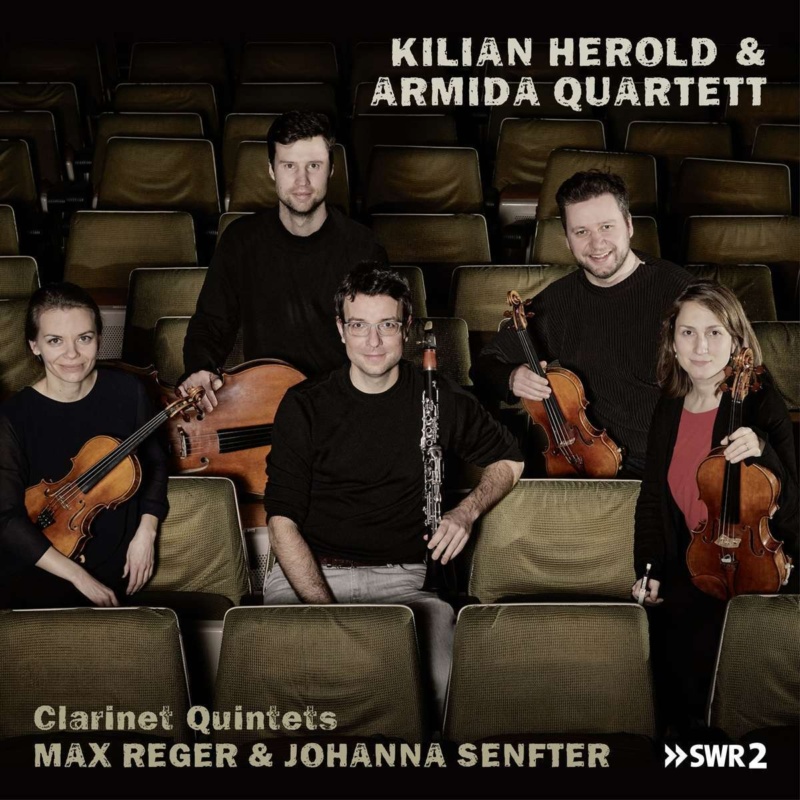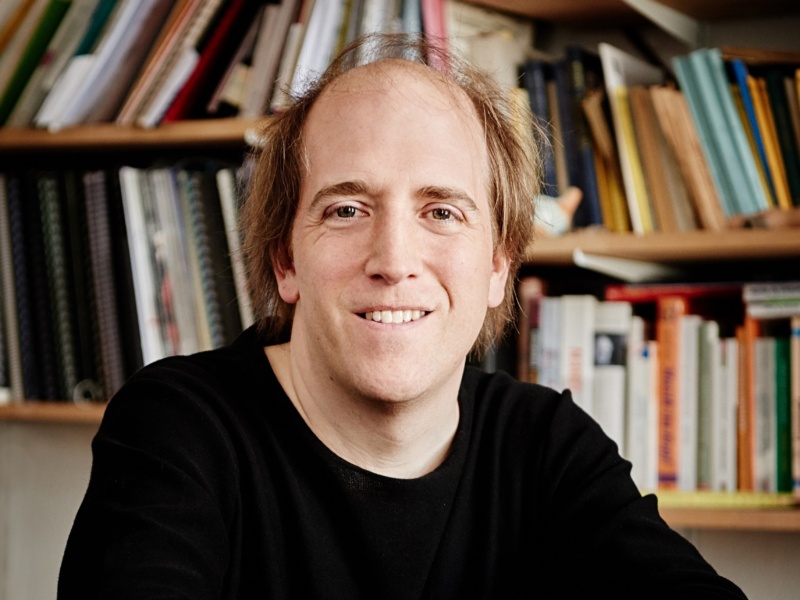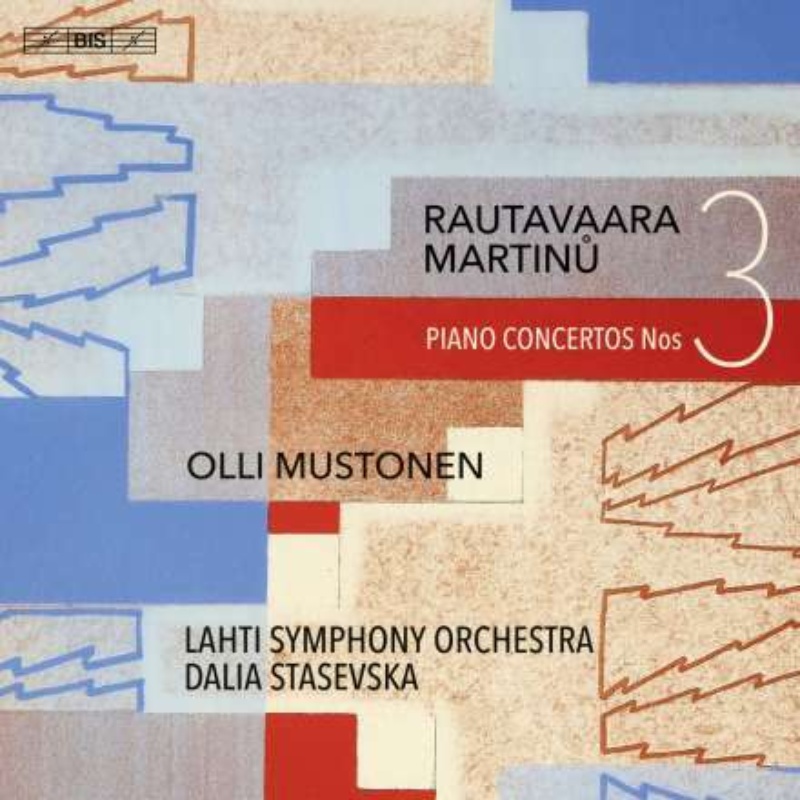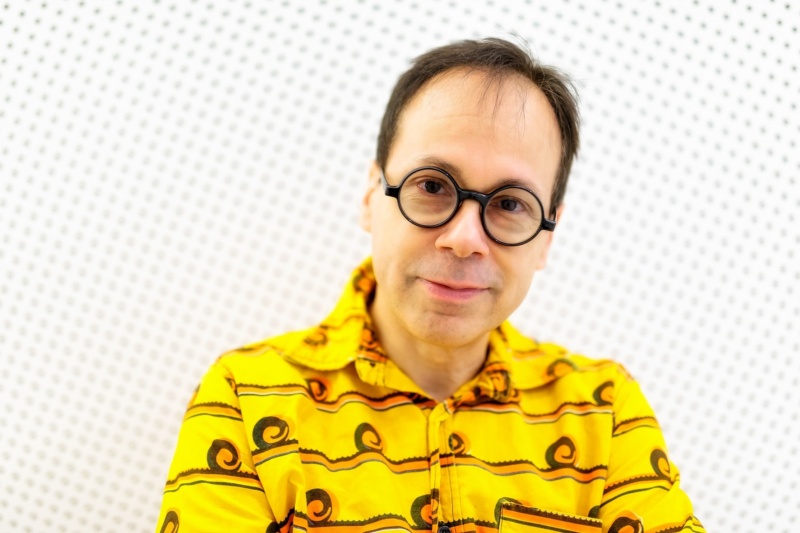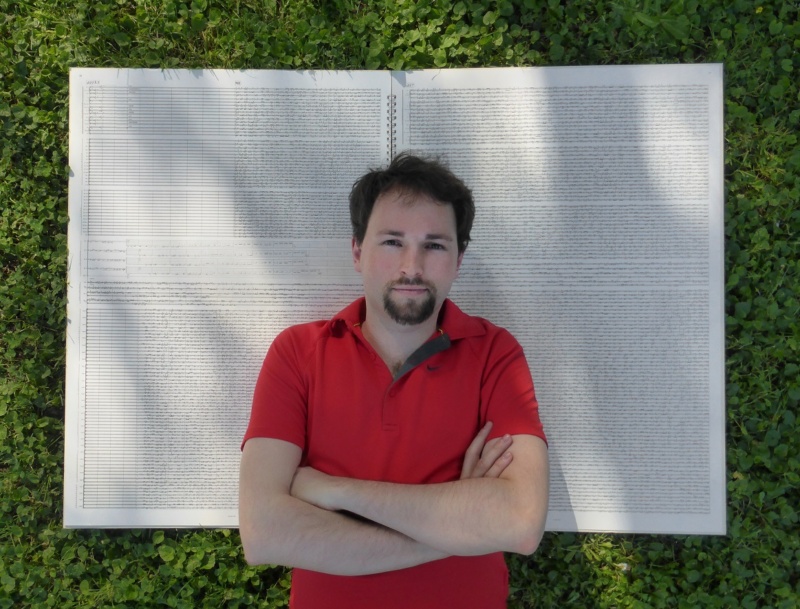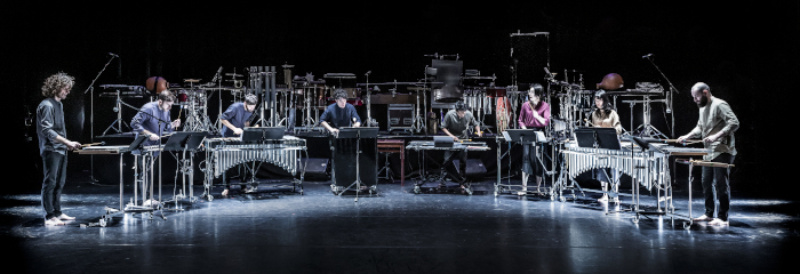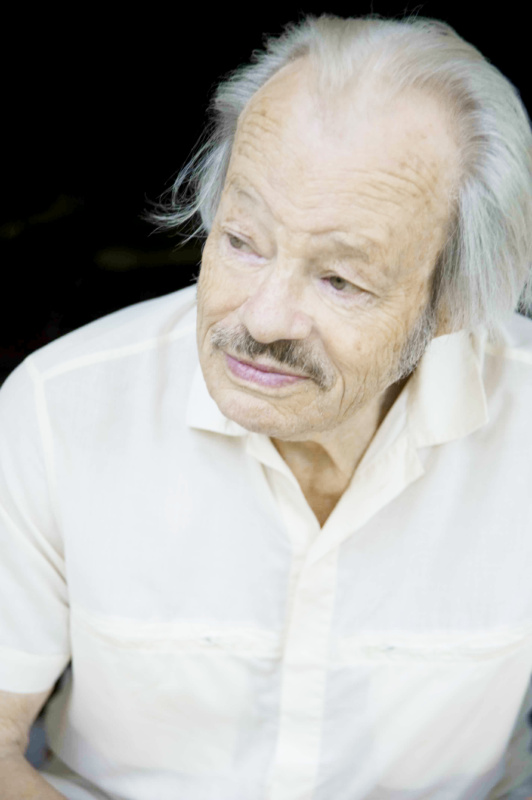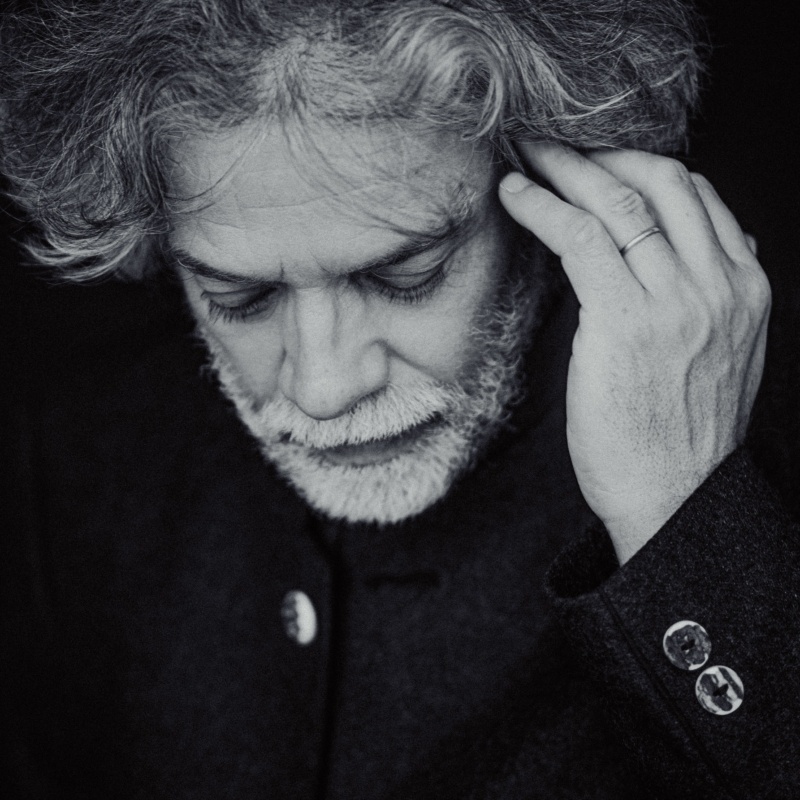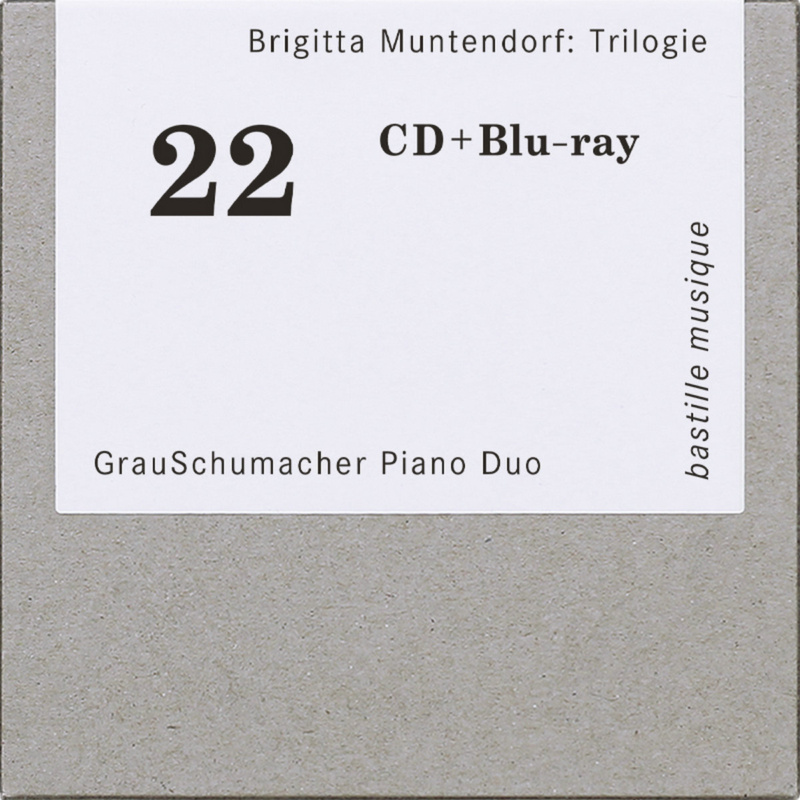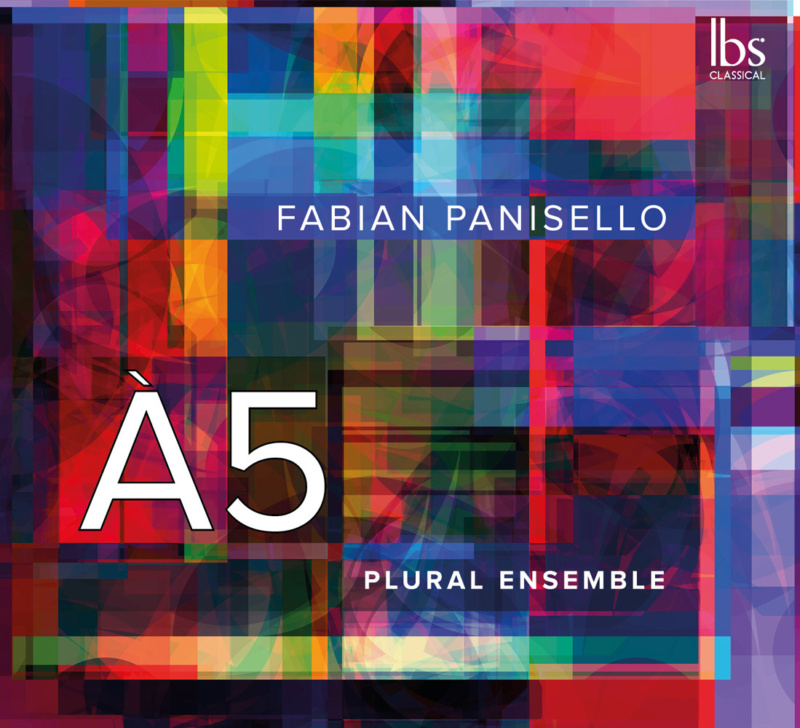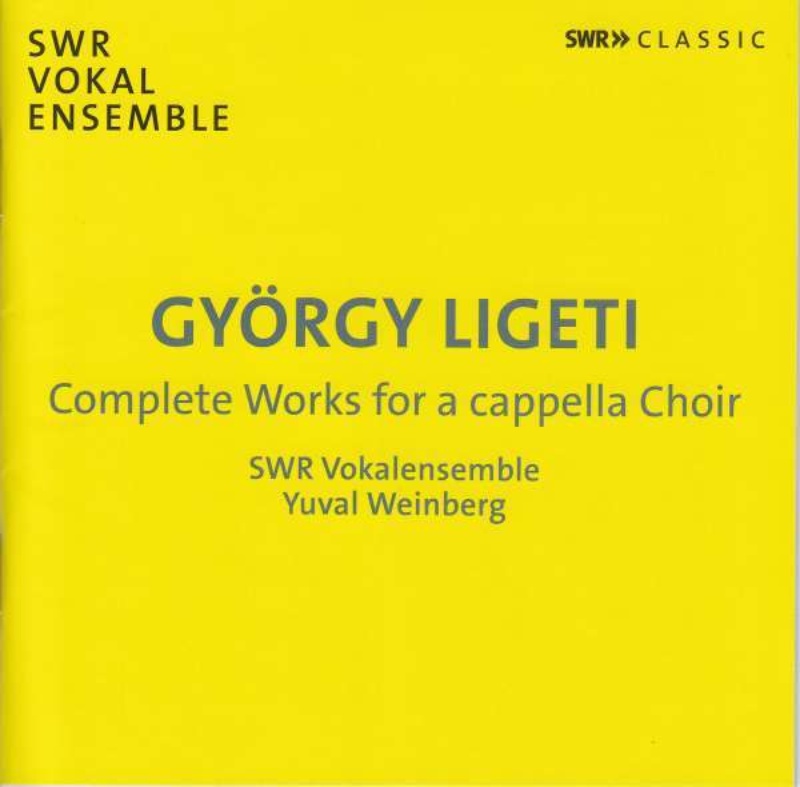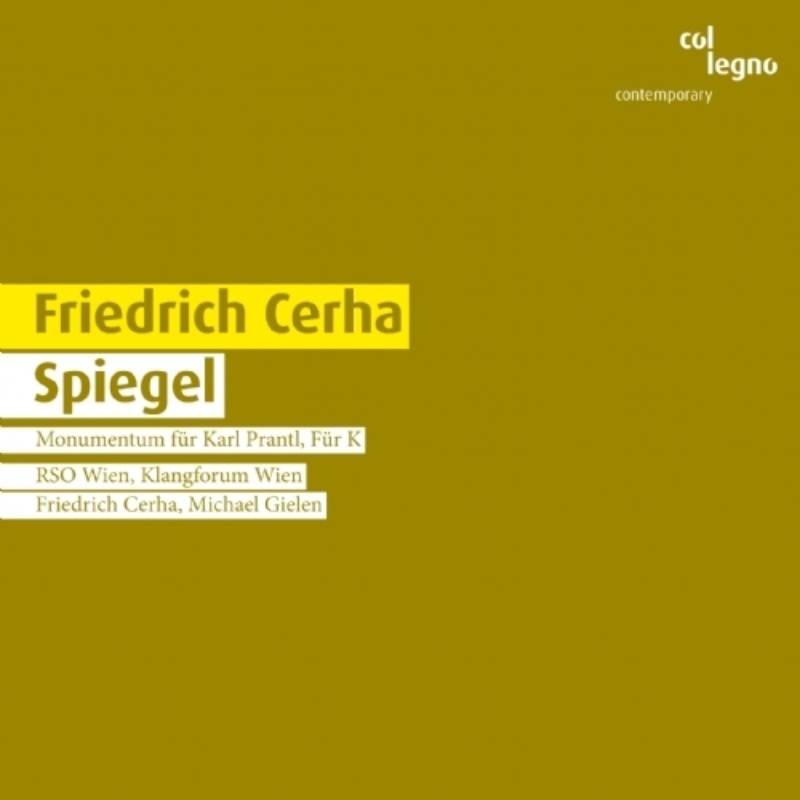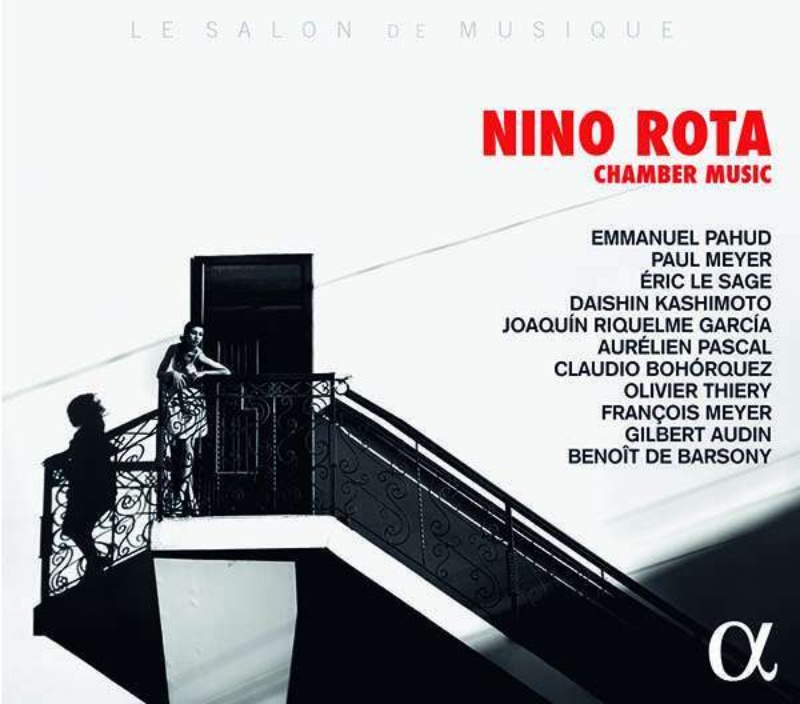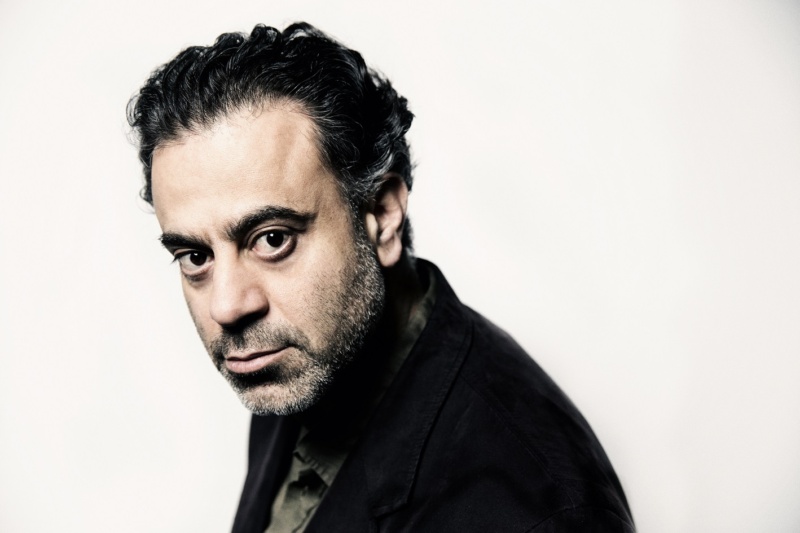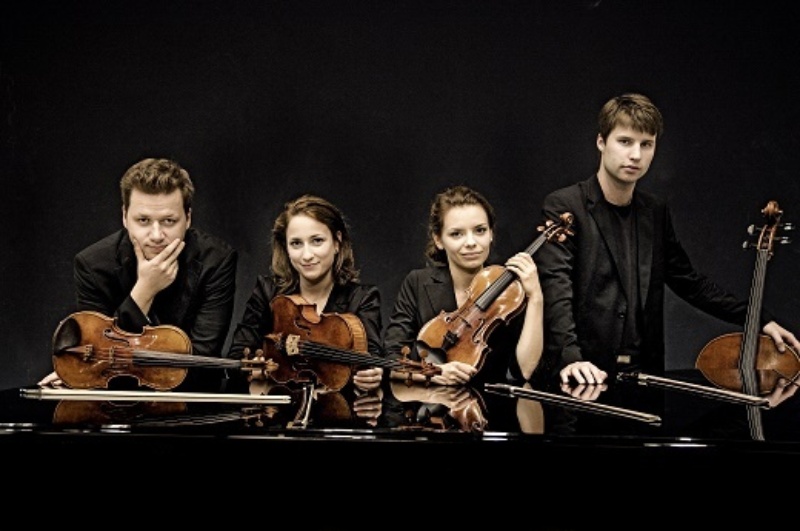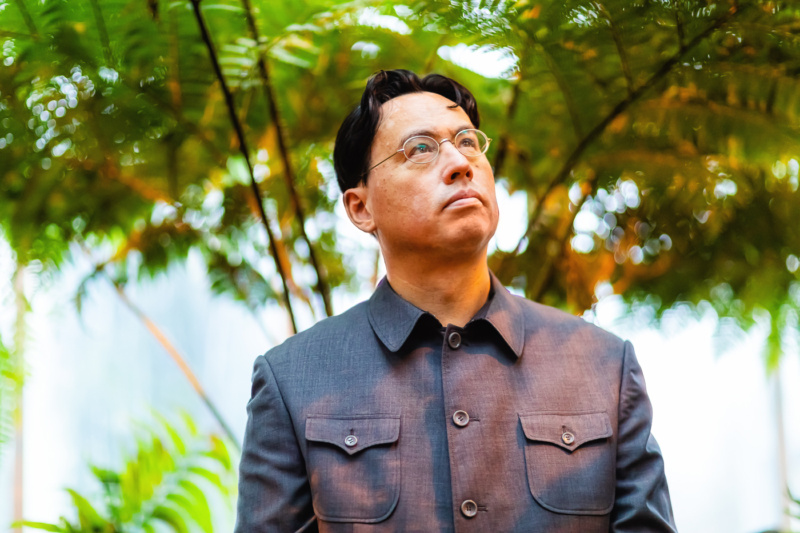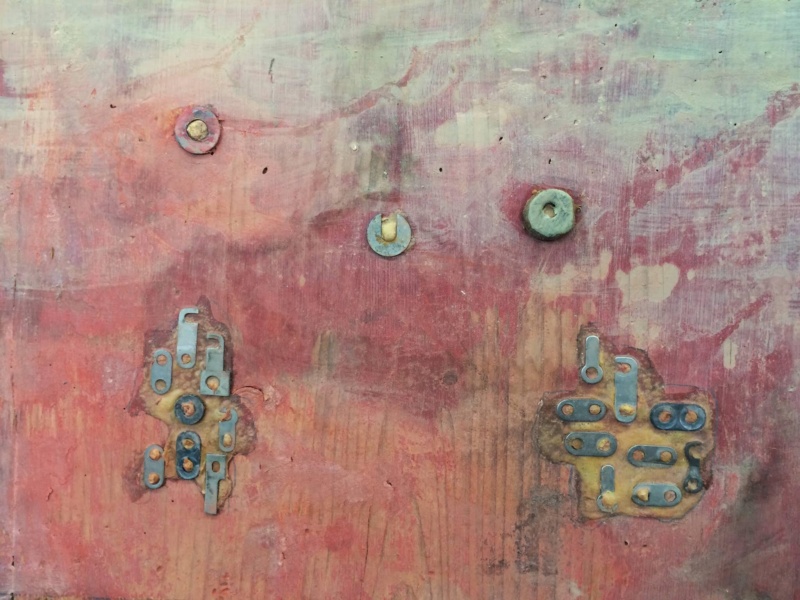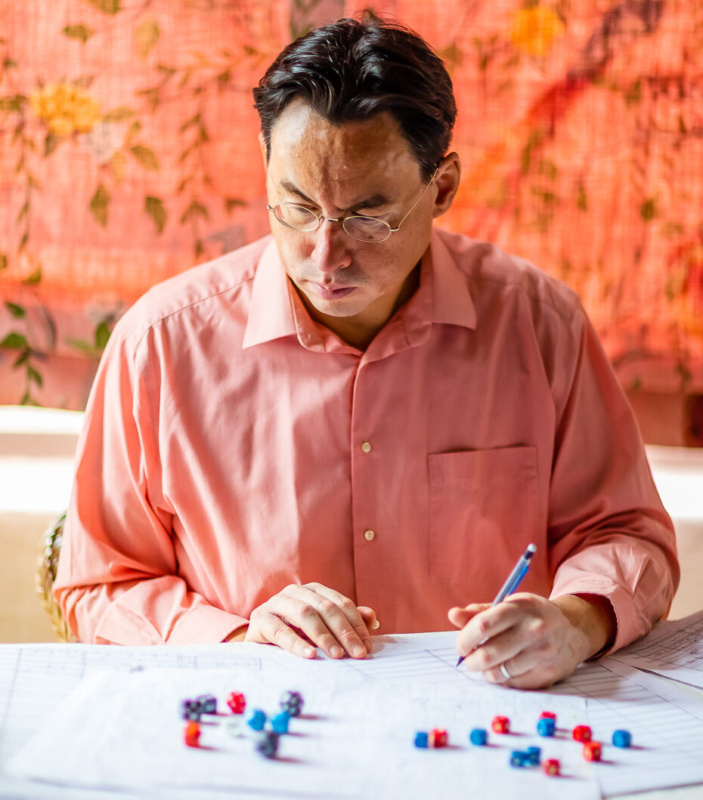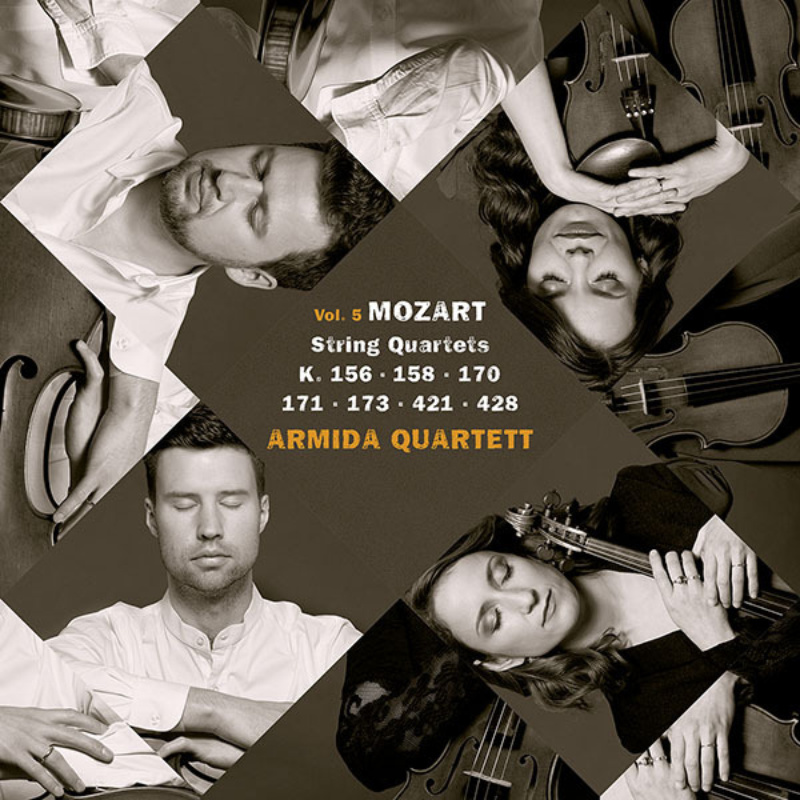Portrait, April 2012
Contrary to what his name may suggest, Samir Odeh-Tamimi
is a German composer through and through. Of Palestinian-Israeli
nationality, it is in Germany where he studied musicology and
composition and where for some 15 years now Ensemble Modern,
musikFabrik, the Bavarian Radio Symphony Orchestra and the WDR choir,
among others, have performed his works. "I have lived here for over 20
years now, but normally nobody thinks of asking me about what is German
about my music", he says with a laugh. "I would prefer to speak of what
is Western about my music, anyway. New Music is not strictly speaking a
German but a Western movement, and it’s the same with the avant-garde in
the visual arts."
"I absorbed Western culture and, by now, know much more about it than I
do about the culture I come from. But the culture I come from still
remains as a memory, everything that happened up to a certain age has
been 'saved'. However, it’s just now that I am beginning to reconnect
with the Arabic world in a very strong way."
But before we lose ourselves in a discussion about national categories, I
ask him what all this means for his artistic work and his compositional
style. "I think I can say that I have a musical language that is all my
own. It all started with a Quran reciter from Egypt, Sheikh Abdul
Basit. At first, his singing struck me as so very similar to the music
of Scelsi, by the way, and I used to believe that Scelsi must have known
him, from the years he spent in Cairo. This reciter moved my so deeply
when I was a child that I imitated his way of singing. Later, when I
came to Bremen, I analysed his voice with a computer in the electronic
studio. It was amazing. Imagine writing something like that for
clarinet! I realised very quickly that no Western musician would be able
to imitate that, not in the slightest. All these ornaments, the
vibratos, the glissandi – this musical practice is so different from
what we have here.” And then I started working on the most miniscule
nuances of Arabic music. This microtonal level and the microscopic
durational dimension as well, were more interesting to me than an entire
melody or mode. I composed large pieces of music from just these small
nuances."
For Samir Odeh-Tamimi, it has always been the human voice that most
inspired him. In his teenage years, he toured Israel as a keyboard
player and percussionist with an ensemble that often enough was the
first one to play the archaic traditional songs on modern instruments.
"I only knew this music from women, mothers, grandmothers. We took it
and made a sort of art music from it, by playing the music of the common
folks in a more refined manner.
"But then again, only a part of what I do derives from these sources,
just an idea, but the music exceeds all that. Of course, Western music
has had a strong influence on me – I keep coming back to Scelsi and
Iannis Xenakis. And Luigi Nono. I neglected his music for quite a while,
but now it intrigues me. Beethoven, too. Back in Israel, he was the
composer par excellence for me."
Another inspiration for Samir Odeh-Tamimi’s music that has grown
stronger in recent years seems to be Sufism. "It’s the ritual that
interests me," he says of this influence, which also has a biographical
source. "The Muslim tradition doesn’t mean much to me nowadays. I’m not
religious, but my ancestors were all Sufis. Not just as a confession but
as a practice. That includes renunciation of all material possessions.
My grandfather was the head of a group of Sufis and oversaw the ritual
every night. He brought me with him three or four times because I was
good at playing a very slow rhythm on the drum. That made a big
impression on me. Very often, when I am composing, I see them dancing in
front of me. I don’t usually reference them in my music, though. That
has only happened in two of my works so far – in Into Istanbul, which I composed for Ensemble Modern, and in Rituale.
The last three minutes, when the entire orchestra breaks loose and it
is up to the percussionist to hold everything together – that comes from
Sufism. Maybe also some small parts of my opera Leila and Madschnun.
"For me, composing is a ritual," he says about what may be the more
important aspect of the spiritual practice of his ancestors. He would
like this ritualistic character to come across in the performances of
his works as well – with regard to both the musicians and the audience.
"Scelsi did that. On one of his CDs, a piano suite, it says: if you are
not in the right frame of mind, you shouldn’t listen to it. I think it’s
wonderful that he demands that." A demand which may be hard to enforce,
however, given a culture where conductors hop on the plane right after
the performance, musicians answer requests from their smartphones during
rehearsals and audiences rush through tightly packed festival
programmes. But at least in the compositional process, Samir
Odeh-Tamimi, seeks to retain a sense of ritual. "I scaled down my life
and don’t want to conduct, be a professor, or run a festival," he
explains.
This focus, being receptive to subtlety and intuition is important to
him. "I’m with Wolfgang Rihm on this one, who said that music emerges
from the moment rather than from technique, mathematical processes or
algorithms. My music evolves in me while I am taking a walk, sitting
here or looking at a painting by Van Gogh or Picasso.
"With me, it all comes very much from listening. I can stand somewhere
and look at the horizon, and then there is a sound, I hear something. I
hear music, an orchestra piece. I remember the first meetings with my
teacher Younghi Pagh-Paan. I said, ‘I’m hearing an entire piece of
music,’ and she replied: ‘Great! Let’s try and write it down.’
"I don’t do any of this intentionally, though." His composition Shira Shir, for instance, which is based on the Song of the Murdered Jewish People
by the Polish writer Jizchak Katzenelson, started with a vocal part
that floated around in his head. "But I couldn’t handle what I was
hearing. It was not before I finished the orchestration that I could
write the baritone part, in just three hours straight. I never believed
that could happen. It was in my head for months. I always woke up with
it."
"And then my piece for Donaueschingen… Over a period of three months, I
didn’t sleep for more than two hours a night, just because these three
women in my head kept on yelling day and night." When premiered in
Donaueschingen, Gdadrója was a "giant yell" for him. "But the
work is more than just that – it’s a piece of art, it is music, a
dynamic and dramatic process." And he opposes what he considers the
dominating conception of beauty in contemporary music. "Nowadays music
aesthetics has become so different from what it used to be in the 1960s
and 1970s. There are so many established composers who just want to make
music that is beautiful, comfortable and not in any case too emotional
or too close. I reject this concept of music which amounts to nothing
more than sheer beauty. This is not to say that I make a stance against
it or yell against it. Rather, I am intense. I demand that you listen to
me.
"I always thought of art as a message, and not just as a …" "Massage?" "Yes, precisely. A work like Shattíla,
for instance, is also a political statement. I don’t have a political
agenda, though, but you could say that I am politically aware. I am very
close to Luigi Nono in that regard."
And which topics will matter to him in the near future? "The Arab Spring
– all the masses of people that take to the streets, they moved me
musically in a very profound way. When I saw these protests, I really
heard music.
"And I will certainly return to Western topics as well," he says to kindly save the thesis we started with. "As I did with Hinter der Mauer,
a cantata based on a text by Christian Lehnert, which received its
premiere by the RIAS Kammerchor and the ensemble musikFabrik to mark the
20th anniversary of German reunification."
Nina Rohlfs, 04/2012 | Translation: Christoph Dennerlein
